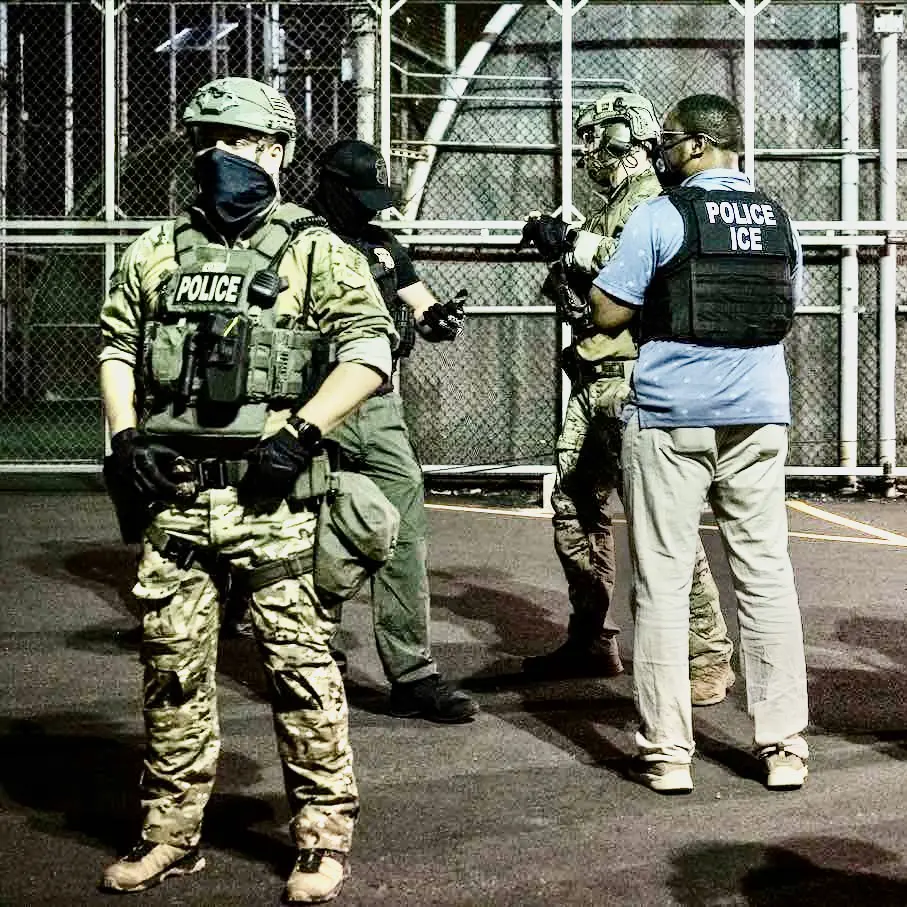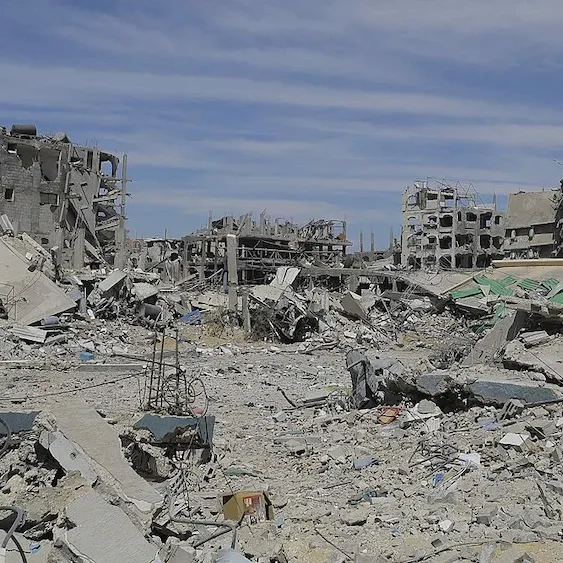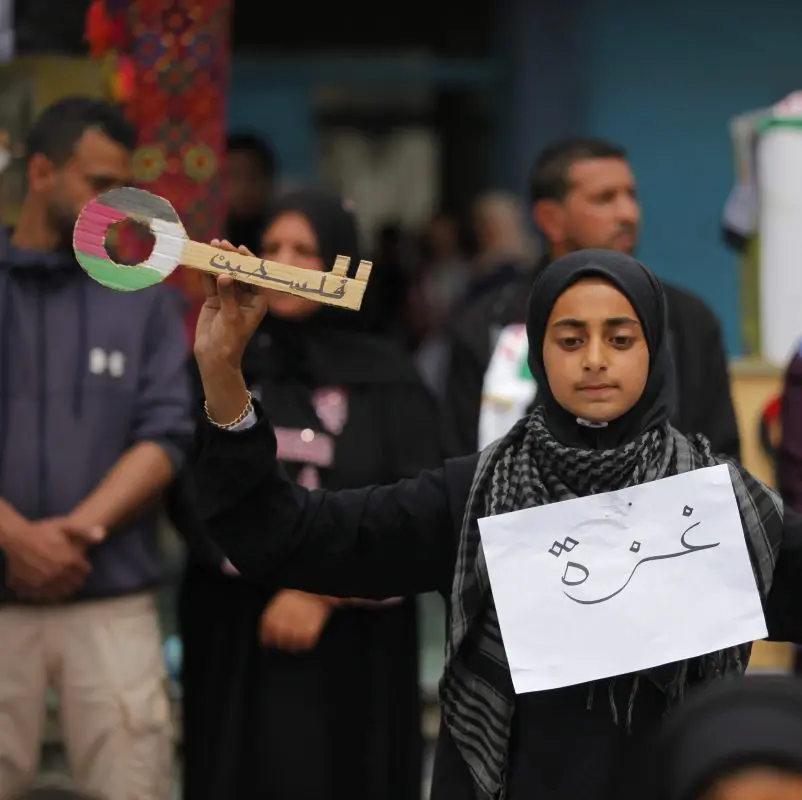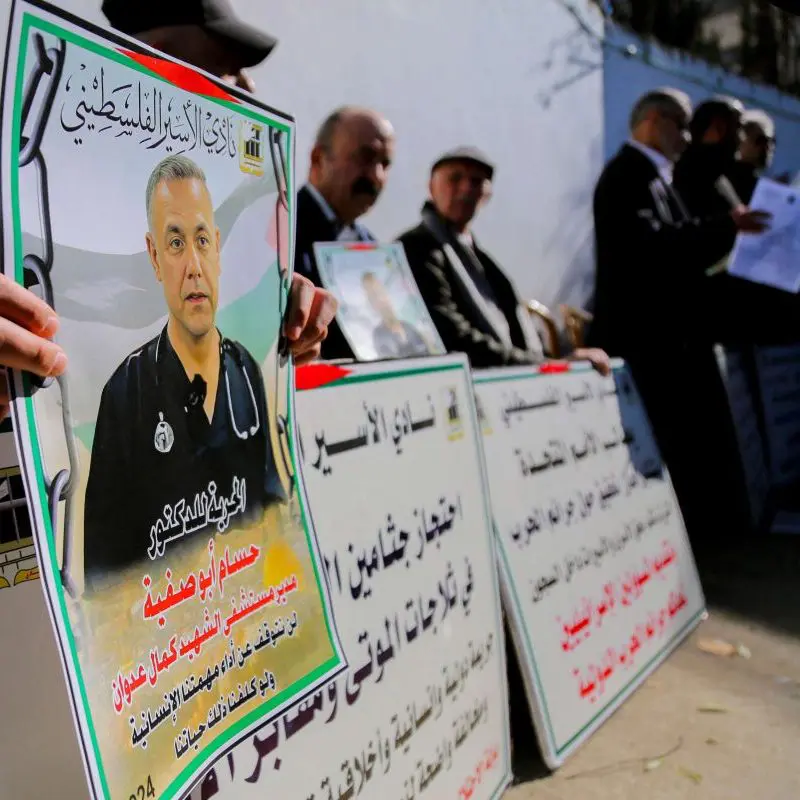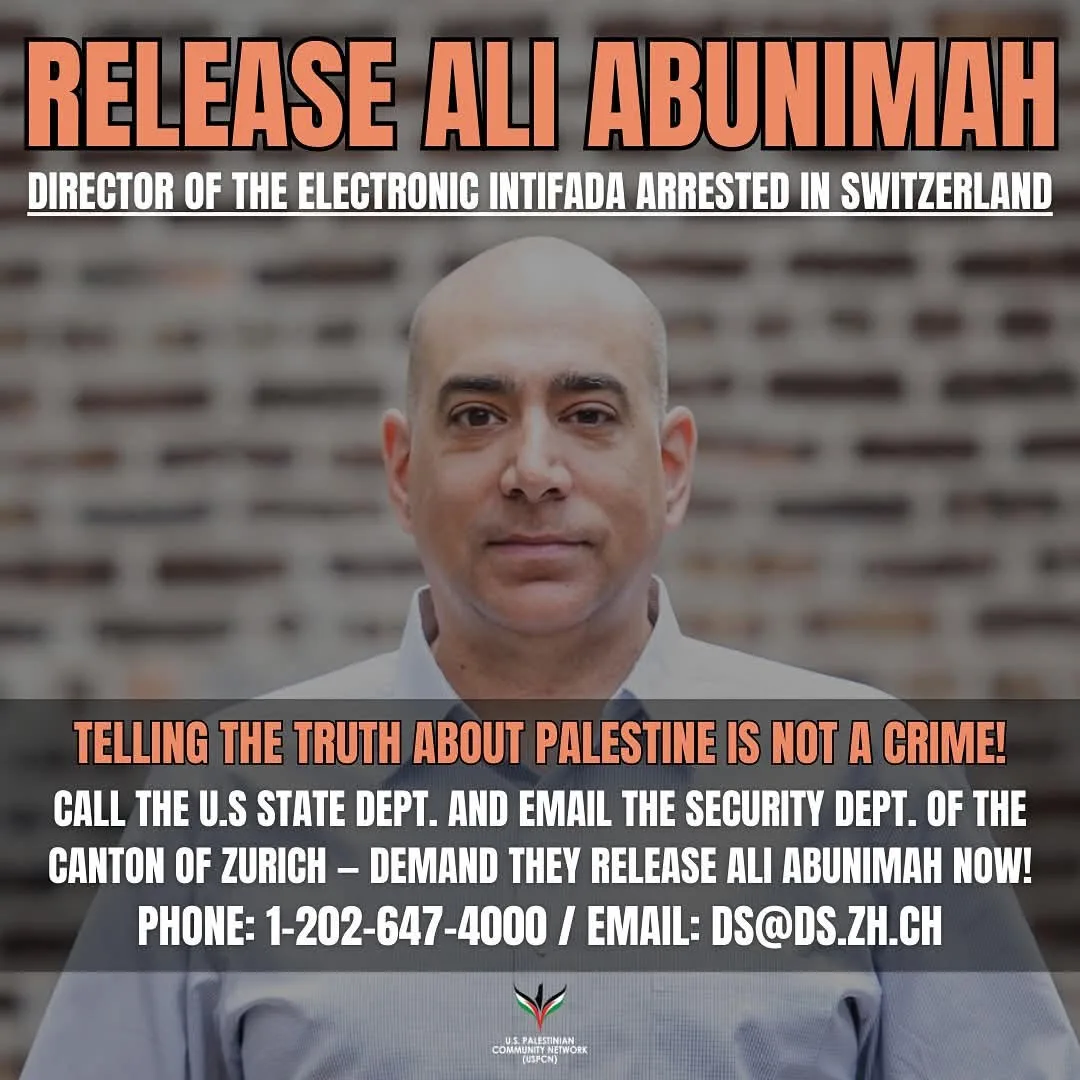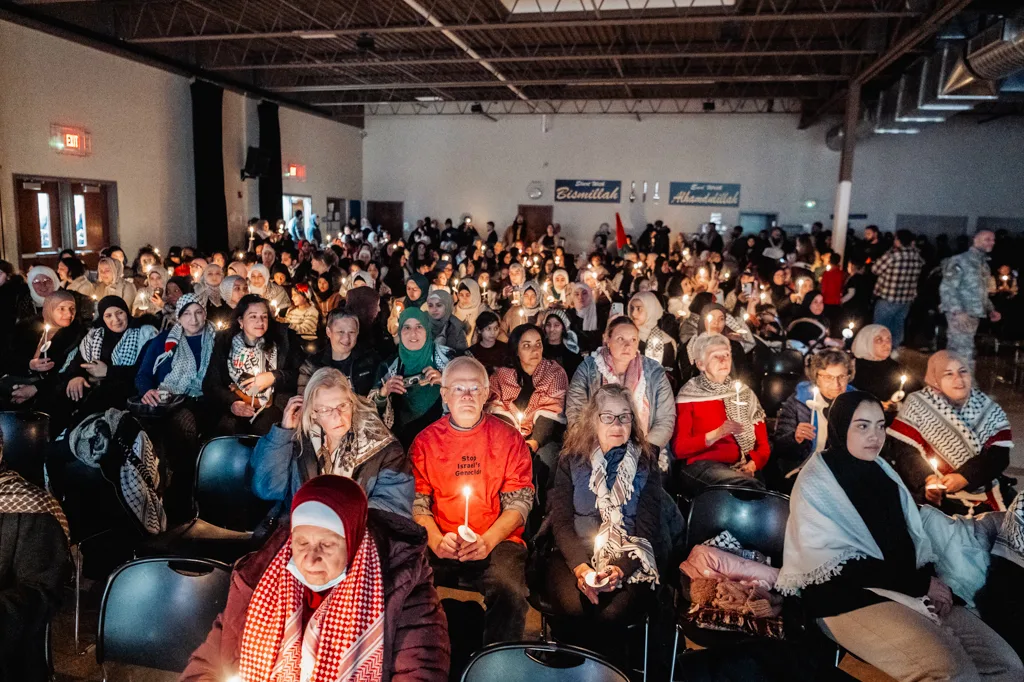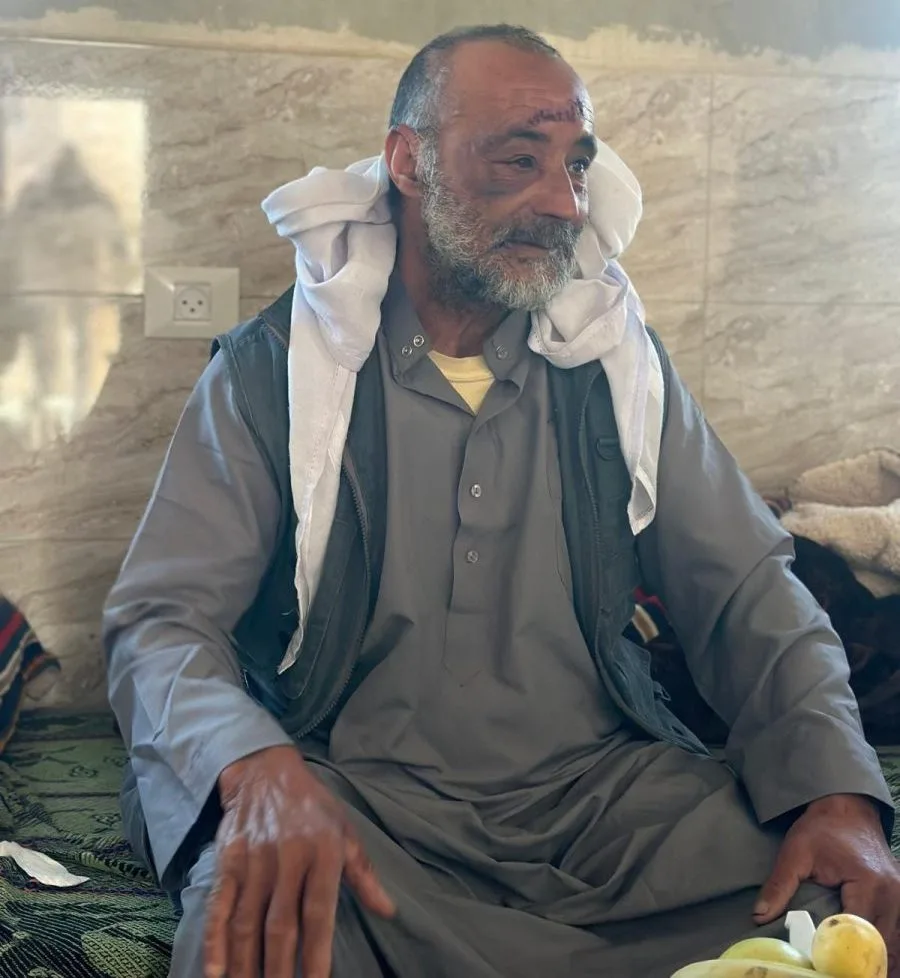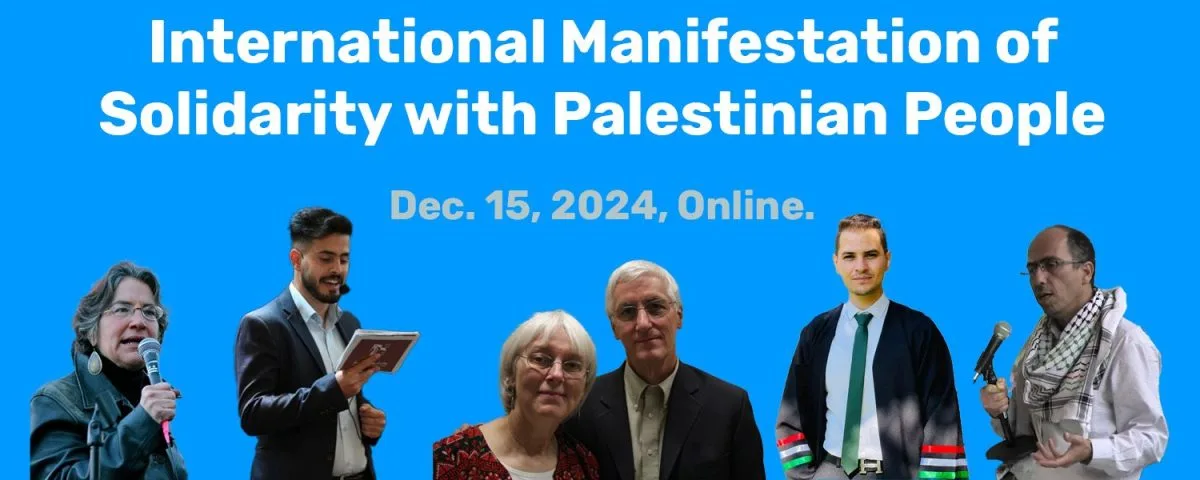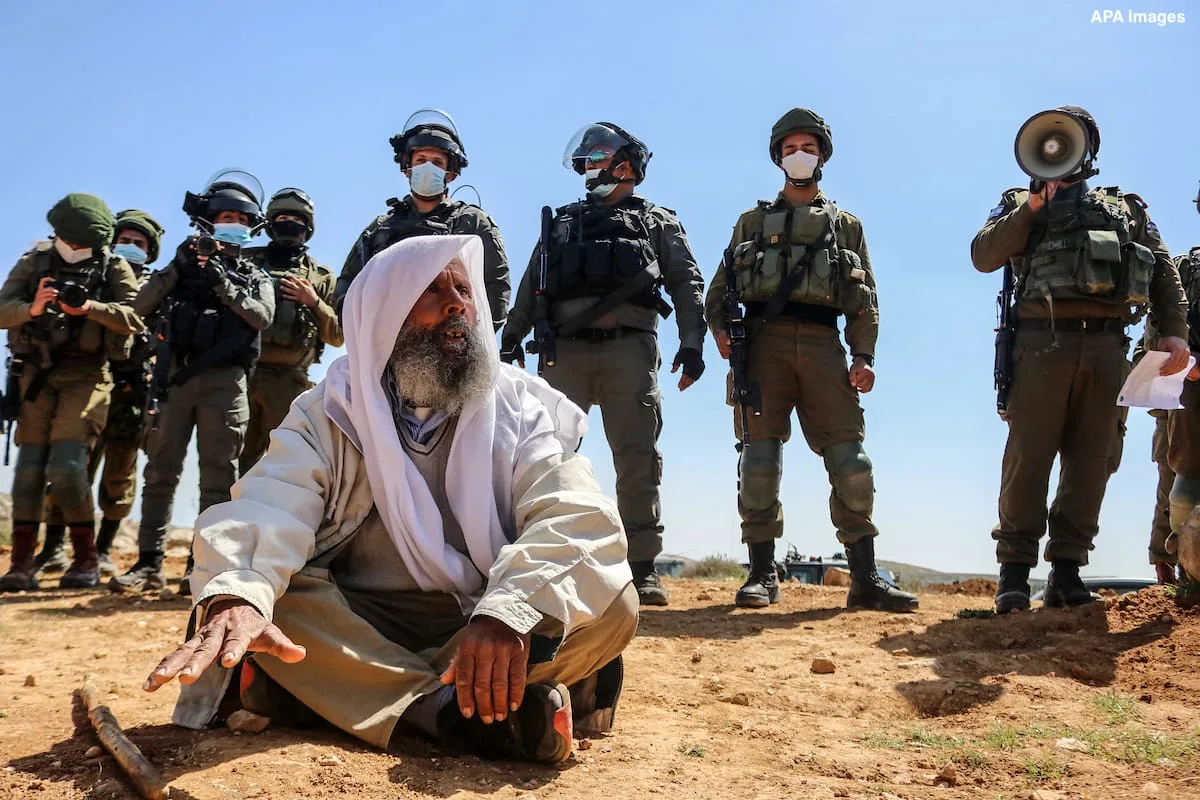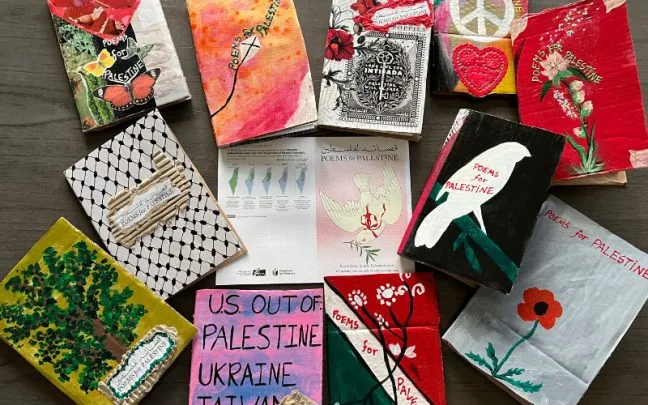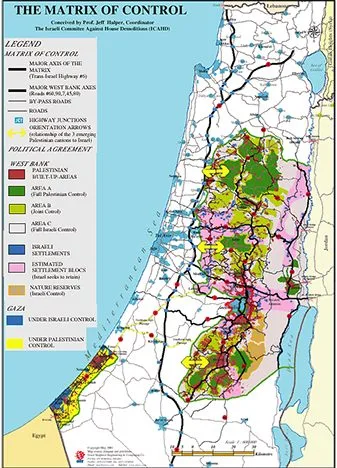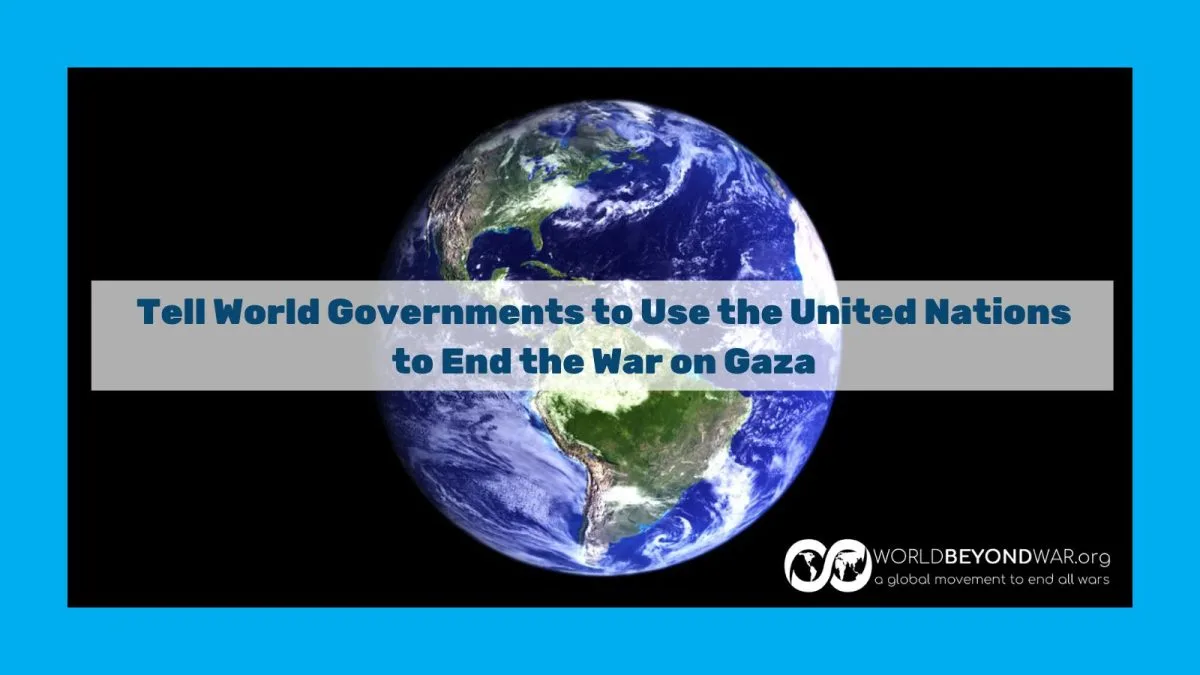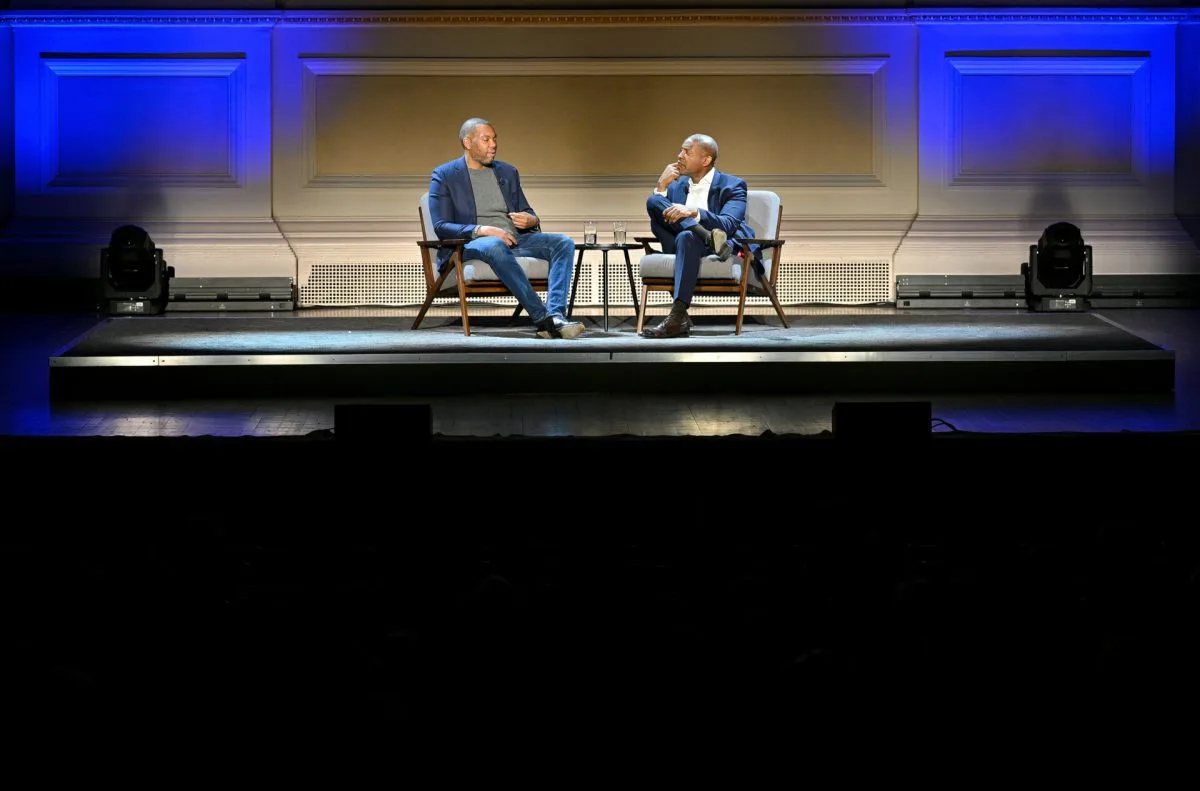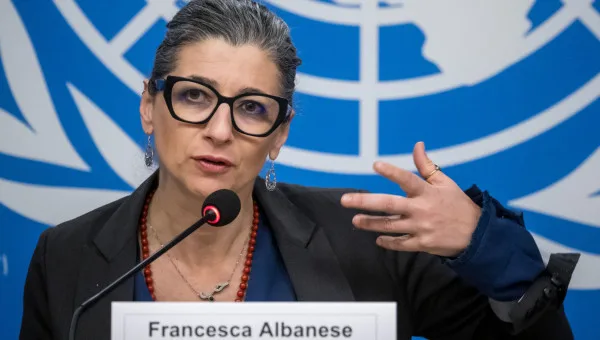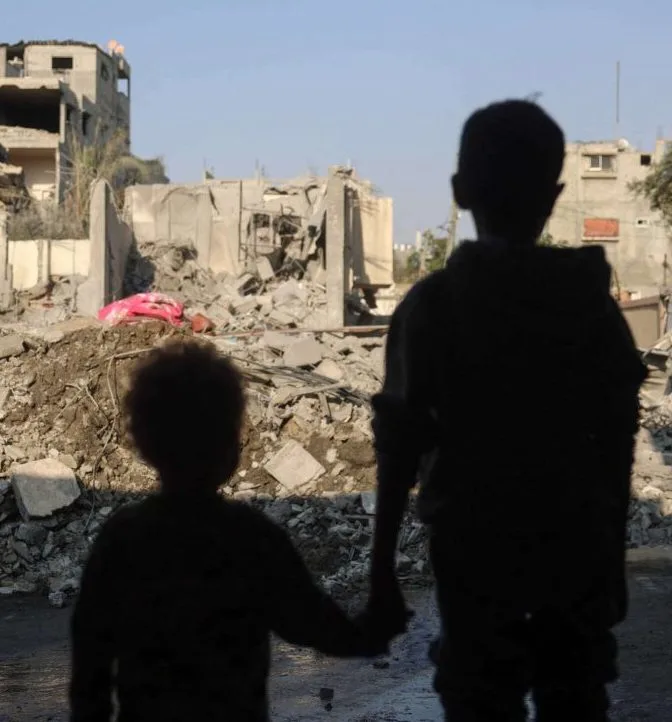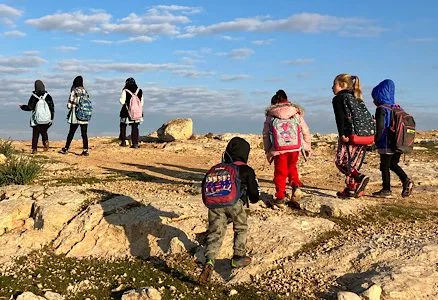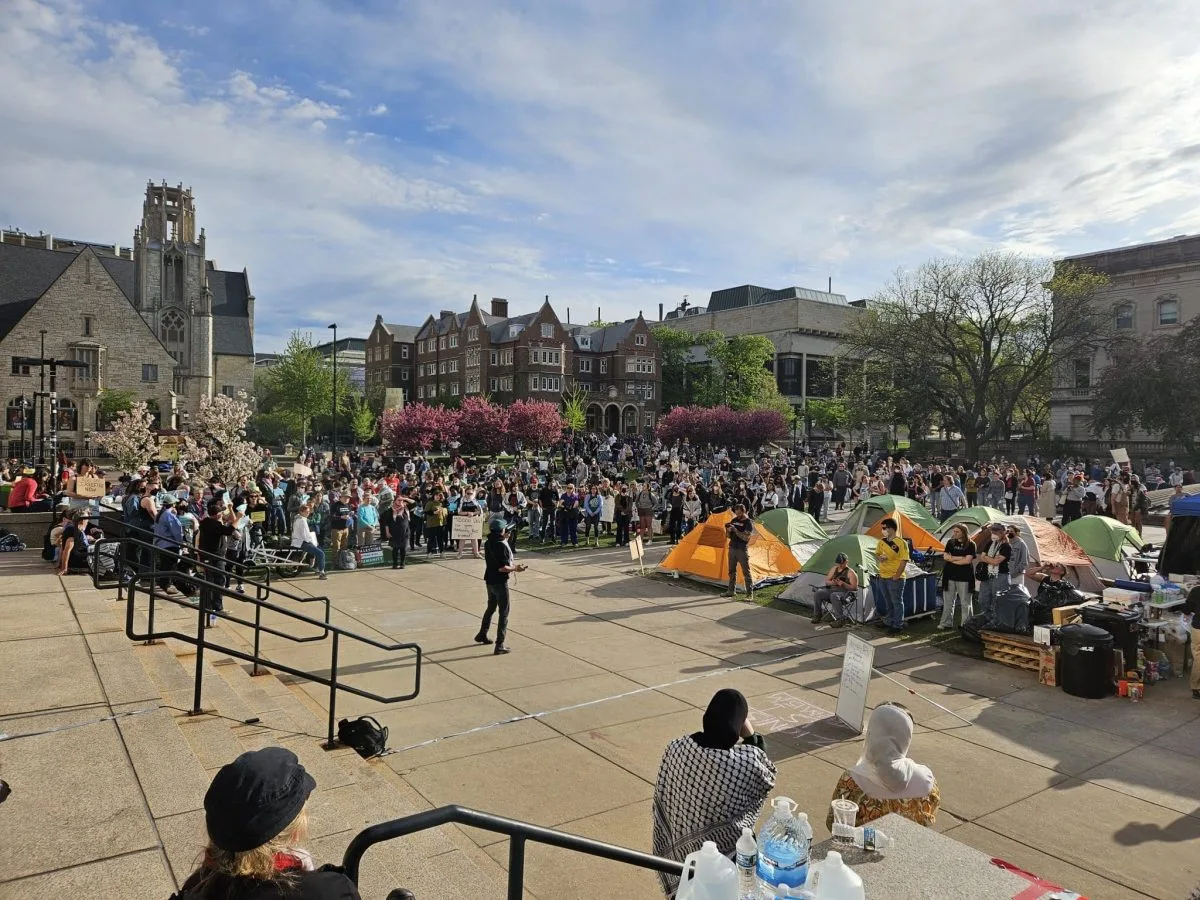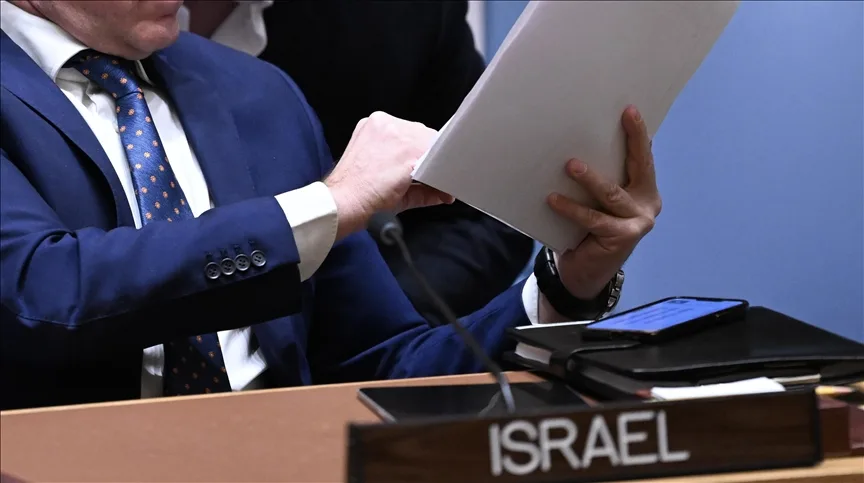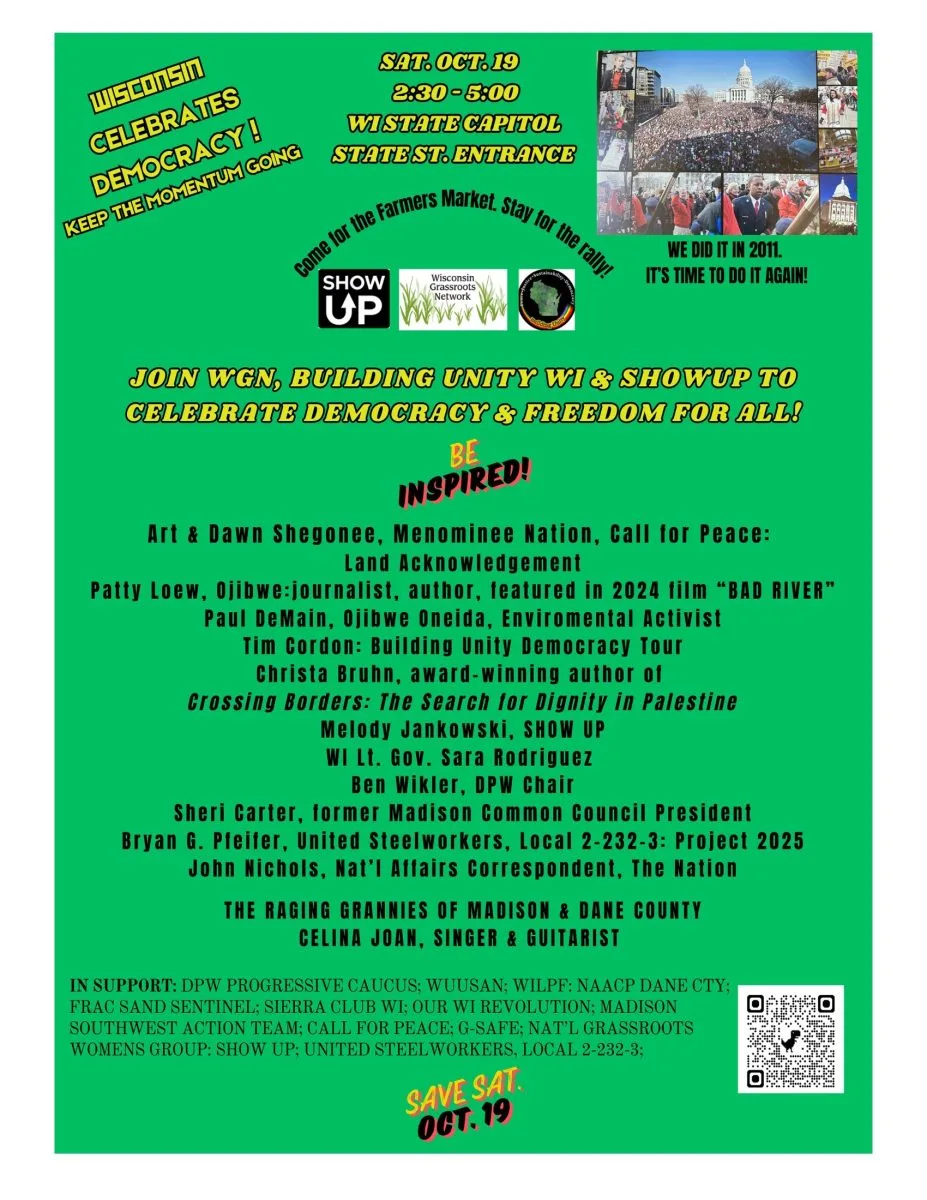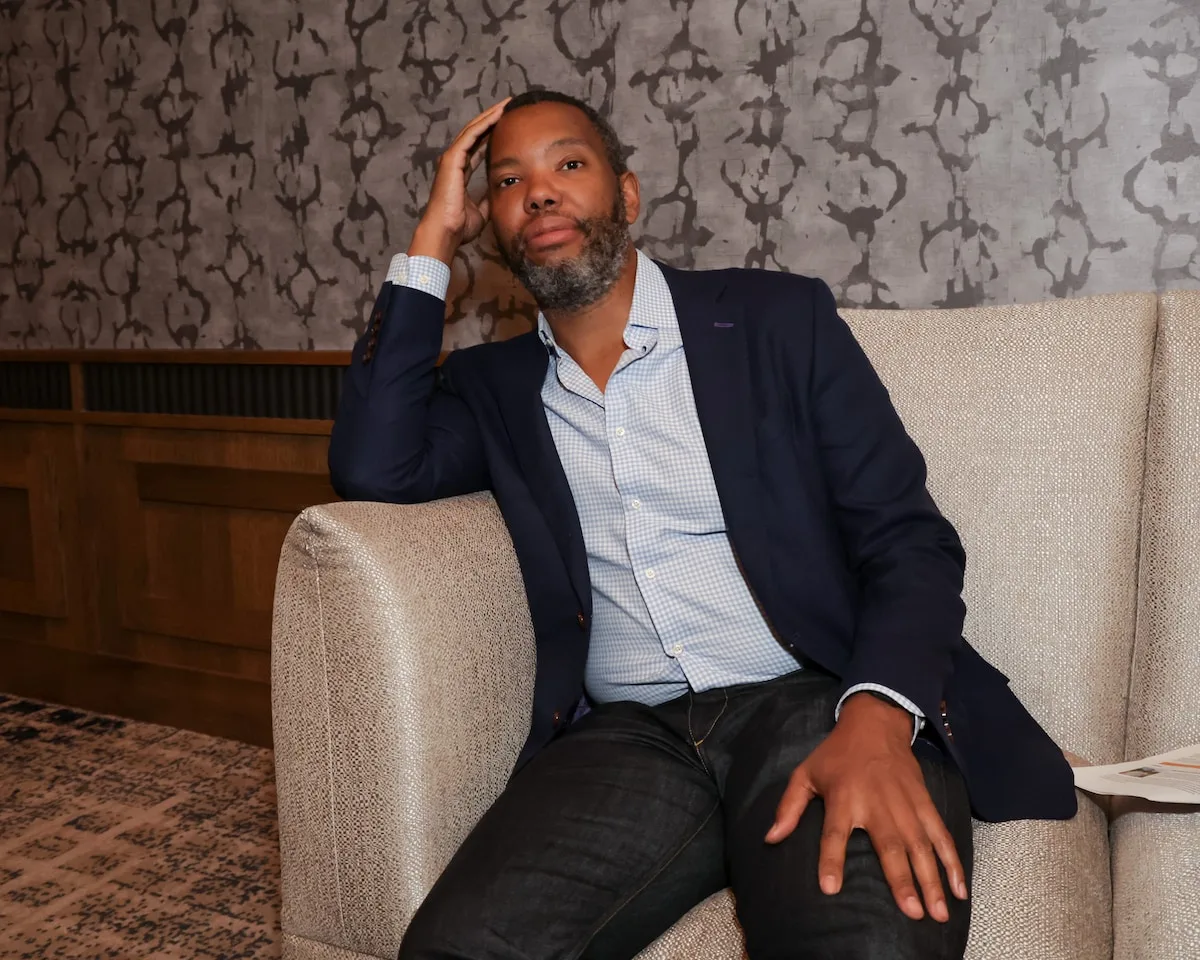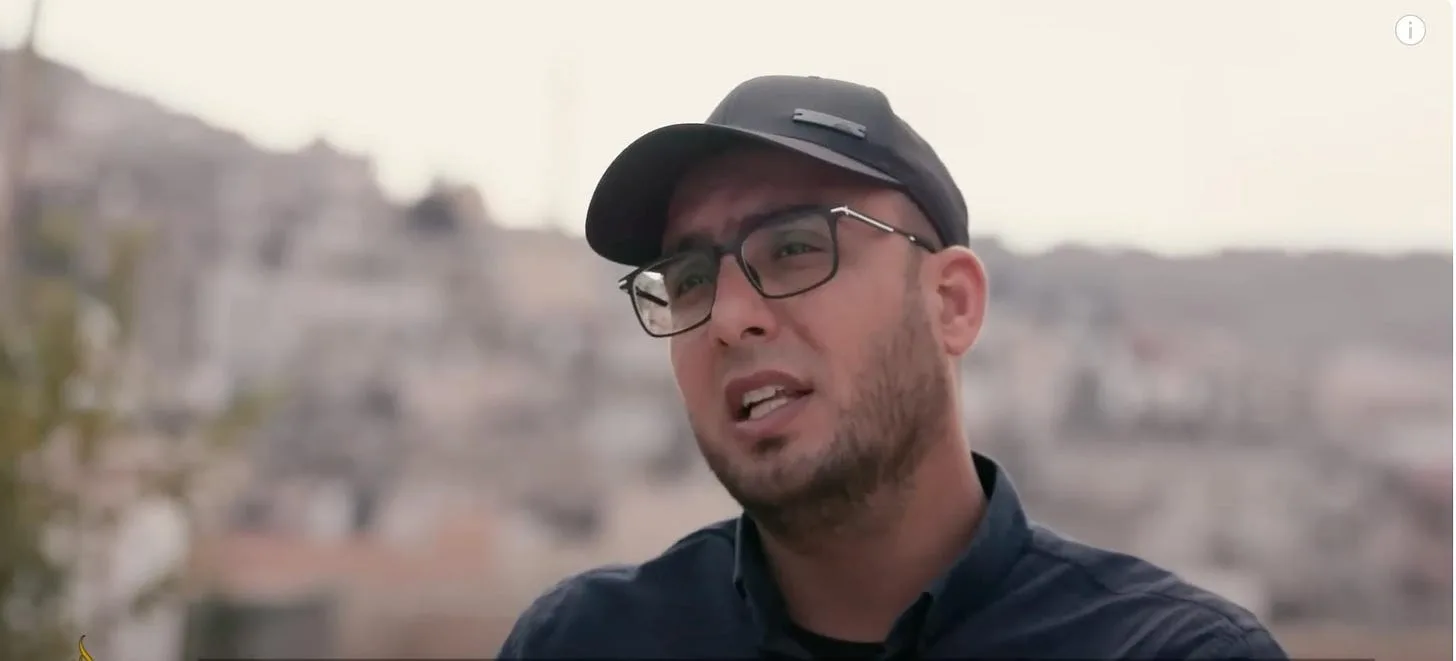The Madison-Rafah Sister City Project (MRSCP)
human rights
Aug 12, 2025
Detention Designed to Crush Body and Mind
ANDREA UMBRELLO, THE PROGRESSIVE, AUGUST 5, 2025
Aug 16, 2025: Come to MASCP’s Annual Pupusa Dinner
1104 Mound St, Madison, 5-7 pm
Trump’s Big Bill Is Building a Big Police State
Chris Lehmann, The Nation, Jul 02, 2025
Imagine If Gaza Was Jewish And The People Bombing It Were Muslims
CAITLIN JOHNSTONE, MAY 16, 2025
The 1948 Nakba and Today’s Gaza Genocide Are Two Sides of the Same Coin
DIANA BUTTU, ZETEO, MAY 15, 2025
Arabs: The Weak Link in the US Civil Liberties Chain
Dr. James J. Zogby, Washington Watch, April 21, 2025
Apr 18-23, 2025: Farah Nabulsi’s Film “The Teacher”
AMC Fitchburg 18
Apr 14-18, 2025: UW Against Apartheid Week
Students for Justice in Palestine UW-Madison
Court Extends Hussam Abu Safiya’s Detention in Israeli Torture Camp
Sharon Zhang , TRUTHOUT, March 26, 2025
BDS: Maersk Shareholder Resolution Letter
17 March 2025
Mar 23, 2025: Update From Palestine
Madison Christian Community, 7118 Old Sauk Rd, 9:00 am
Mar 13, 2025: A Conversation with Mazin Qumsiyeh
Israeli Committee Against House Demolitions (ICAHD) – USA, Mar 4, 2025
Petition to U.S. for the release of Dr. Abu Safiya
Drop Site News, Feb 16, 2025
Dr. Abu Safiya Reports Torture and Severe Abuses in Israeli Custody
Al Mezan Center for Human Rights, 11 February 2025
Dr. Hussam Abu Safiya Details Torture in Israeli Detention
The Palestine Chronicle, February 12, 2025
Feb 23, 2025: Global Day of Action to #CloseBases
Truax Field/Dane County Regional Airport, 2002 Pankratz St, 1 pm
My imprisonment in Switzerland, with Ali Abunimah
The Electronic Intifada, Jan 28, 2025
Ali Abunimah Statement after Release by Switzerland
Twitter, Jan 27, 2025
Switzerland deports EI’s Ali Abunimah
The Electronic Intifada, 27 January 2025
Release Ali Abunimah from Swiss jail
Wisconsin Bail Out The People Movement (WiBOPM), January 26, 2025
Wisconsin Coalition For Justice In Palestine Looks Beyond The Ceasefire
Sandra Whitehead, Wisconsin Muslim Journal, Jan 24, 2025
Extremist Zionist Organizations Threatening Community Members
American-Arab Anti-Discrimination Committee (ADC), Jan 25, 2025
The New York Times Refused to Run Our Ad About the Gaza Genocide
JOYCE AJLOUNY, THE NATION, JANUARY 24, 2025
Feb 5, 2025: “Being Jewish After the Destruction of Gaza” Online
A presentation by Peter Beinart
Act Now: Help Free Detained Palestinian Hospital Director
Amnesty International, Jan 23, 2025
Our heads are being smashed in as the world turns a blind eye
Hamdan Ballal, HUMANS OF MASAFER YATTA, Jan 16, 2025
Dec 15, 2024: International Solidarity with the Palestinian People
Online 10 am – 11:30 am CT Global Solidarity for Peace in Palestine (GSPP) is…
Report: We Will Return
An analysis of the escalating forced displacement of Palestinian communities in the West Bank since…
Dec 14, 2024: Andaleeb Cartonera Workshop at Madison Friends’ Meeting House
1704 Roberts Court, Madison 2-5 pm Everyone is invited to another Andaleeb Cartonera workshop to make cardboard…
Except for Palestine
“When crises erupt, we protect civilians from mass atrocities, promote accountability for those responsible for…
Tell the World’s Governments to End the Genocide
The crime of genocide is happening. The intentional destruction of a people, in whole or…
Between Ta-Nehisi Coates and Me
‘The Message’ cuts to the human heart of the situation in Israel-Palestine, refusing to contort…
Nov 17, 2024: Andaleeb Cartonera Bookmaking Workshop
A Room of One’s Own2717 Atwood Avenue, Madison2-5 pm Everyone is invited to another Andaleeb Cartonera workshop…
30 Jewish Organizations Support UN Human Rights Rapporteur Francesca Albanese
The Bullet, November 8, 2024 As Jewish organizations and groups, we express our support for…
There must be “due reckoning” for horrific violations, possible atrocity crimes in Gaza
7 in 10 Killed in Gaza Were Women or Children. It is likely that the…
UN: 7 in 10 Killed in Gaza Are Women or Children, in “Grave Violations” of Law
Women and children were the vast majority of those slaughtered by Israel in the Gaza…
A Special Appeal for Masafer Yatta
My dear friends, As I return to Masafer-Yatta in the West Bank, I would gratefully…
How To Make Supporters of Israel’s Genocide Feel Safe on Campus
Emergency Teach-In S48 EP1, Jadaliyya, Nov 1, 2024 Featuring Sinan Antoon, Cultural Landscape Specialist; Adel Iskandar, Media…
What we learned from UW-Madison’s pro-Palestine encampment
How this protest fits into recent history, what to carry moving forward, and what to…
Rapporteur urges Israel’s UN membership suspension
‘I do believe that the impunity that has been granted to Israel has allowed it…
Oct 19, 2024: Democracy and Freedom for All Rally
Capitol Square at State St2:30 – 5:00 pm Palestine is on the rally agenda, so…
Ta-Nehisi Coates: I Was Told Palestine Was Complicated. Visiting Revealed a Simple, Brutal Truth
DEMOCRACY NOW! OCTOBER 08, 2024 Watch Full ShowImage Credit: Courtesy of Ta-Nehisi Coates As the…
Ta-Nehisi Coates on the power of stories, and Israeli apartheid
“The country of Israel is a state in which half the population exist on one…
Palestinian Journalist Mujahed al-Saadi Violently Arrested by Israeli Forces in Home Raid
Al-Saadi is being held in administrative detention at Megiddo, a prison known for abuse SHARIF…
Oct 28, 2024: Film Boycott, on the anti-BDS movement
Madison Central Library 6:00 pm Over the past six years, unbeknownst to most Americans, 37…


